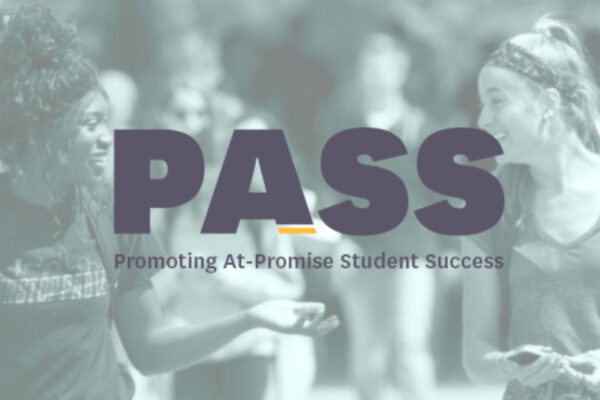By Ralitsa Todorova
As well-being becomes an even greater concern for college youth, the Promoting At-Promise Student Success (PASS) project is directing more attention to student and practitioner wellness. The research team is developing innovative mixed methods approaches to better understand students’ experiences and practitioners’ responses. PASS scholars recently published a paper focused on job crafting, with an examination on how practitioner stress and burn out can impact their abilities to support at-promise student success. Another paper considered how practitioners approach student care through empathy, particularly when COVID-19 required a re-framing of approaches to student support.
Our team is currently exploring student well-being in connection to sense of belonging. Theory suggests students’ well-being and sense of belonging are intimately tied to one another (Strayhorn, 2012), but few studies have empirically examined the relationship between well-being and belonging for at-promise youth. An upcoming paper submitted to AERA analyzes survey data and interview transcripts, where themes related to well-being emerged. The wellbeing themes are associated with Nunn’s (2021) three realms of sense of belonging: campus-community, social, and academic. Themes of social well-being (Chadha et al., 2021) and academic perceptions of success (Bowman et al., 2019) emerged, further aligning with Nunn’s conceptualization. This study goes beyond demonstrating what belonging is and shows how students’ experiences of belonging are interrelated with their overall well-being on campus.
In another report which will be presented at the First Year Experience Conference, the PASS team investigates student experiences of well-being through student and practitioner (instructor and staff) interviews. Students expressed a sense of belonging as integral to their well-being on campus, which was something practitioners were aware of as well. For example, students with diverse backgrounds shared feeling that their identities were not accepted everywhere on campus, affecting their sense of well-being. Instructors noted that the experiences of at-promise students were different from traditional students. Practitioners were aware of the varying obligations that at-promise students had, such as caretaking and employment outside of the university. Furthermore, students connected their psychological well-being with academic success. Moments of doing well on a test or getting positive feedback made them feel confident, successful and happy. But academic experiences also brought heightened stress. This played out through procrastination, not attending class, and feeling their confidence dropping as they became more overwhelmed with schoolwork. Practitioners in our sample also connected students’ well-being to their academic engagement. Instructors seemed quite aware that their students were struggling psychologically. This led to approaches of trying to support students: getting to know them as individuals, overhearing group conversations in class and determining when to reach out to a student, and giving accommodations such as extra time to complete an assignment, even when the student did not have official accommodations through the university.
PASS researchers are also working with campus partners to better understand how institutions are addressing issues of student wellness on campus. For example, one of the University of Nebraska campuses has developed and trained resident assistants as ‘mental health ambassadors’ who can do wellness checks but are not direct counselors. Additionally, the campus is using an app-based wellness tool, Togetherall, where students can access online mental health support. The app also integrates with the campus-based mental health services when needed.
Ultimately, college campuses have been and will need to continue adapting in order to better support student well-being. The PASS project aims to better understand well-being on campus and to provide resources and tools for institutional agents to better serve their college communities. Please visit the PASS website for updates on emerging findings.








